Blake Allen, Student and Outreach Minister, LHBC
Acts 10:1-16
10 At Caesarea there was a man named Cornelius, a centurion of what was known as the Italian Cohort, 2 a devout man who feared God with all his household, gave alms generously to the people, and prayed continually to God. 3 About the ninth hour of the day he saw clearly in a vision an angel of God come in and say to him, “Cornelius.” 4 And he stared at him in terror and said, “What is it, Lord?” And he said to him, “Your prayers and your alms have ascended as a memorial before God. 5 And now send men to Joppa and bring one Simon who is called Peter. 6 He is lodging with one Simon, a tanner, whose house is by the sea.” 7 When the angel who spoke to him had departed, he called two of his servants and a devout soldier from among those who attended him, 8 and having related everything to them, he sent them to Joppa. 9 The next day, as they were on their journey and approaching the city, Peter went up on the housetop about the sixth hour to pray. 10 And he became hungry and wanted something to eat, but while they were preparing it, he fell into a trance 11 and saw the heavens opened and something like a great sheet descending, being let down by its four corners upon the earth. 12 In it were all kinds of animals and reptiles and birds of the air. 13 And there came a voice to him: “Rise, Peter; kill and eat.” 14 But Peter said, “By no means, Lord; for I have never eaten anything that is common or unclean.” 15 And the voice came to him again a second time, “What God has made clean, do not call common.” 16 This happened three times, and the thing was taken up at once to heaven.
In the 2018 SBC Convention annual meeting, the convention’s president J.D. Greear hosted a panel discussion around the topic of racial reconciliation. One of the questions Greear asked pastor Dhati Lewis, a guest speaker at the event, was this: how can we diversify our leadership within the convention without promoting tokenism? Pastor Lewis responded with a thought provoking answer. He said, “we must first diversify our dinner tables.”
I have revisited this statement many times in my mind. The reality is the kingdom of heaven will be a diverse kingdom. If we can’t love one another now, we will have a hard time with eternity.
Peter would soon learn this lesson in Acts 10. The need for ethnic reconciliation didn’t start in the 1600s. When sin entered the world, ethnic division was conceived and would later be born in many shapes and forms. This is not a political statement. This is a reality. As long as the seeds of sin are planted in the hearts of men and women, ethnic division will exist. And in the flesh, all of humanity has the capability of falling into this sin no matter their ethnicity.
In this story, Peter is being confronted with his own biases. There was great hostility between the Jews and Gentiles. Jews hated Caesarea and viewed it as an offspring of God’s enemies. Gentiles were also viewed as unclean, dogs, and pagans. But before Jesus ascended into heaven, he told his disciples they would be his witnesses to Judea, Samaria, and to the ends of the earth (Acts 1:8). When we get to Acts 10, God is beginning to fulfill the entirety of that promise.
The disciples had already witnessed to the Jews, those in Judea, and those in Samaria. And in Acts 10, the Gospel will begin to go forth to the ends of the earth. In Acts 10, Peter learned that the gospel is for all people including the Gentiles. Peter is given three visions of the same thing. He sees a great sheet falling on the, a diversity of animals, and a message saying, “kill and eat.” Peter’s response is he will not eat anything unclean. He is thinking of the Levitical laws here. God’s response to Peter was not to call unclean what he has made clean. The point God is making is this: You, Peter, view the Gentiles as an unclean people. But I am making them clean by my righteousness. We see this is made clear to Peter in the later parts of Acts 10.
Peter would eventually realize that the Gospel is for every nation. Christ tore down the walls of hostility in the crucifixion event. He took two different groups, Jews and Gentiles, and made them into one kingdom people (Eph 2). The problems with ethnic division in our world is a spiritual problem. They exist because man tries to build up what Christ has torn down. No matter what our political affiliations are, we are called to kingdom diversity as a natural subset of kingdom unity. The Gospel is what bridges all nations together.
To end this devotion with a question and a challenge, what are you personally doing to pursue kingdom unity amidst a diverse kingdom. It starts with intentionality. Are you diversifying your dinner tables? That just may be the starting point.
PRAYER FOR TODAY
Father, give us eyes to see your heart for ethnic reconciliation. Saturate our hearts with the Gospel and may it flow into our relationships with others who are different from us. May we pursue kingdom unity in all things. Amen.
MEMORY VERSE OF THE WEEK:
2 Peter 3:18
But grow in the grace and knowledge of our Lord and Savior Jesus Christ. To him be the glory both now and to the day of eternity. Amen.

